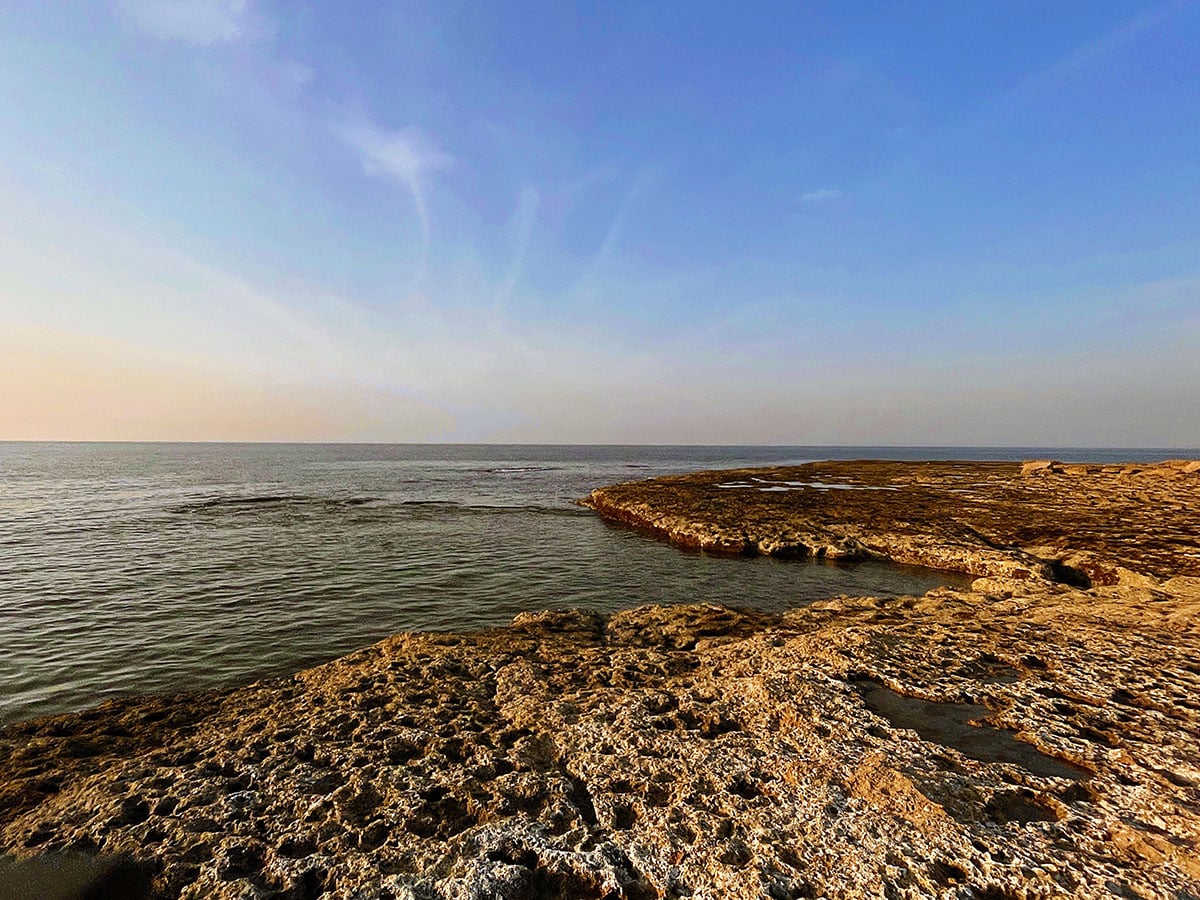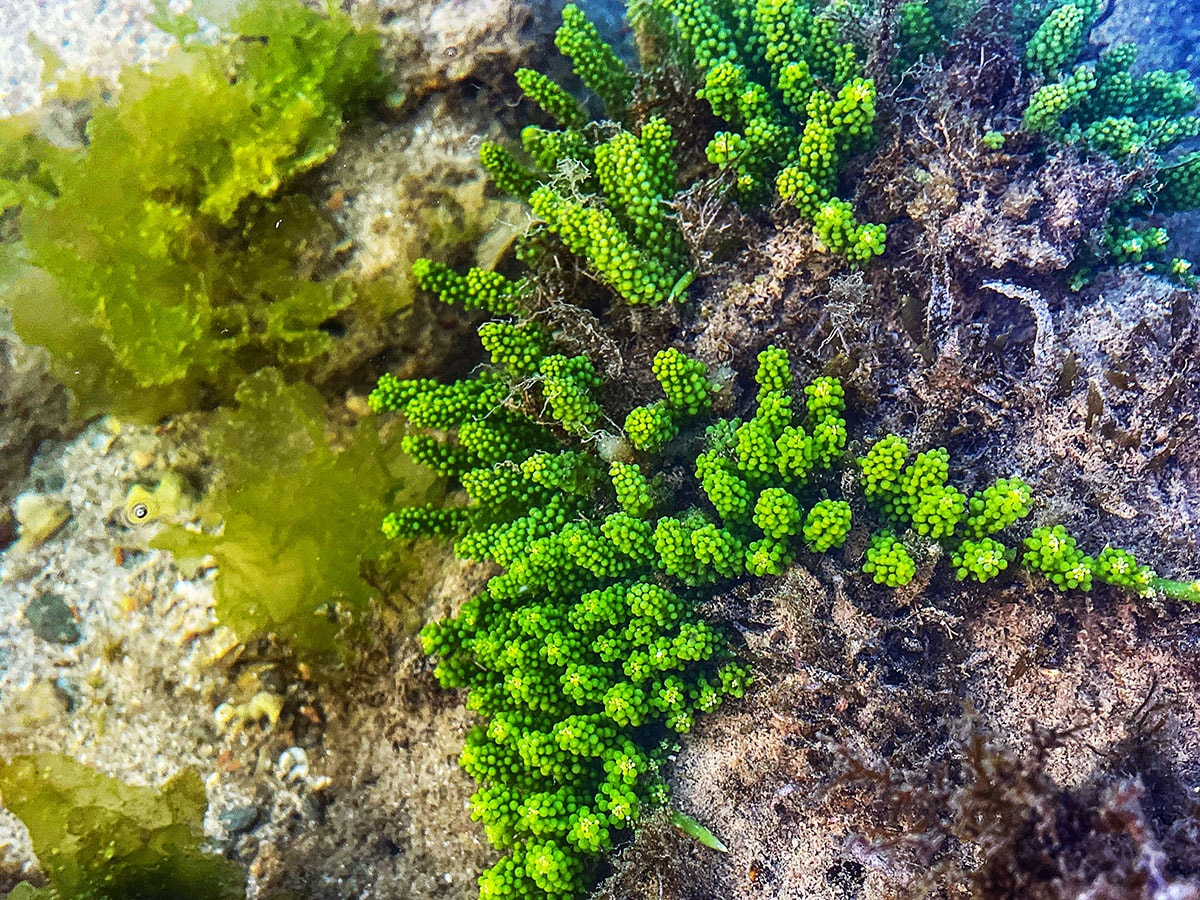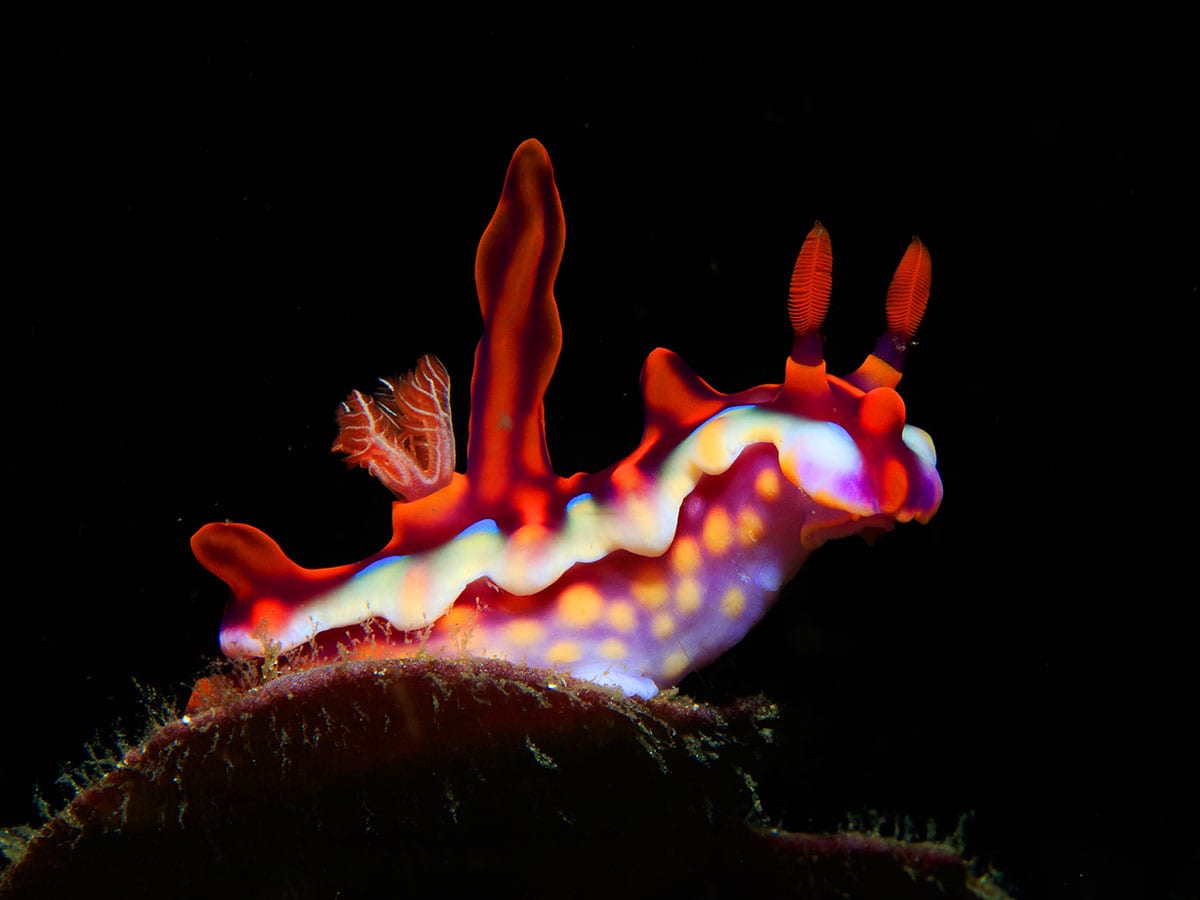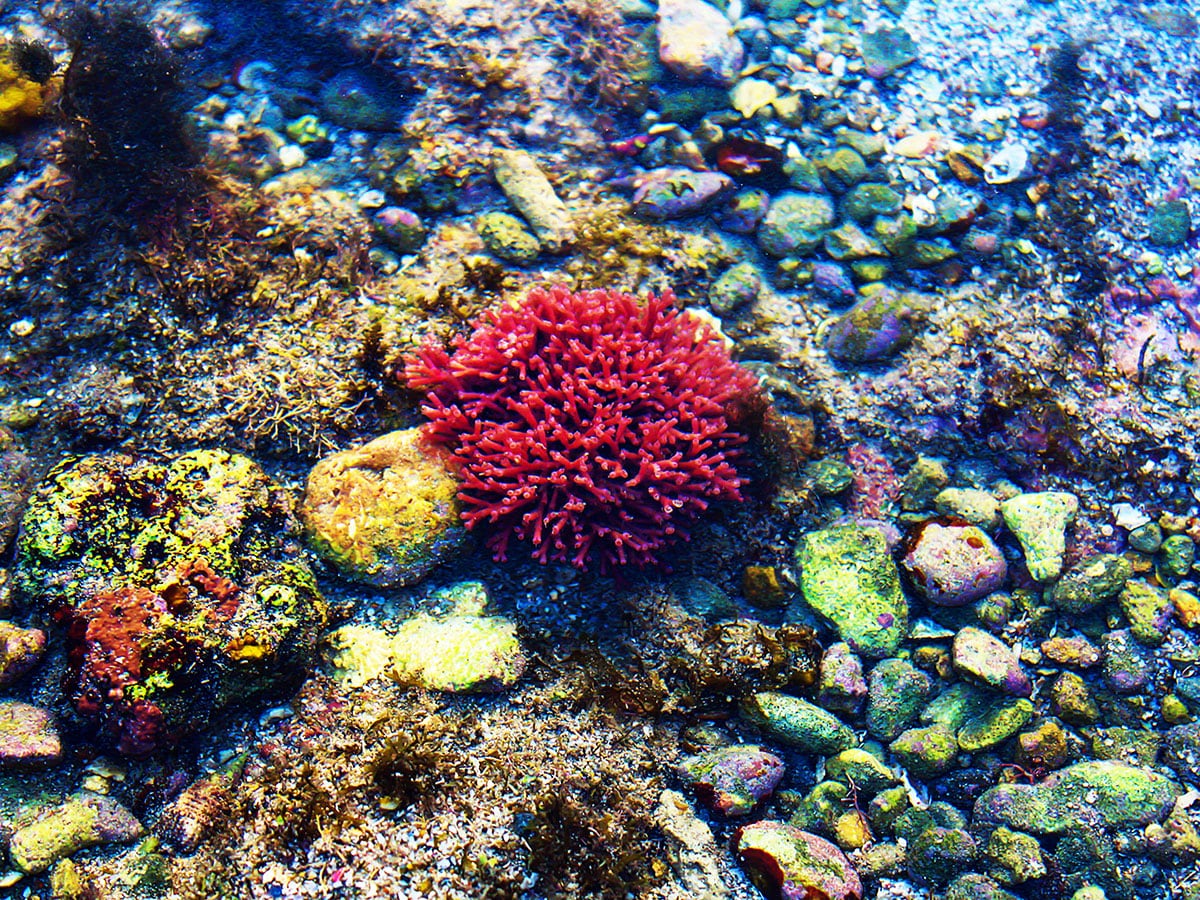At Gujarat's Shivrajpur beach, discovering the climate resilience of sea slugs
Sea slugs are seemingly inconspicuous creatures in ocean ecosystems, which have a surprising impact on regeneration, climate regulation, and environmental stability


Shivrajpur, a coastal gem nestled near Dwarka in Gujarat, offers a blend of natural beauty, serenity, and adventure. Its pristine, Blue Flag-certified beach invites you to dip your toes into the crystal-clear turquoise waters. The beach in Shivrajpur has obtained this certification by meeting 33 rigorous criteria in four key areas: Environmental education, water quality, environmental management, and safety services. This distinction guarantees not only a scenic escape, but also a commitment to environmental sustainability, safety, and accessibility for all. It also highlights the often-overlooked role of marine life in climate regulation, showing how underwater creatures contribute just as significantly to climate control as those on land.
During my stay in Shivrajpur this January, Sangik Datta, the resident marine naturalist at Reef Resort, provided a deep dive into the region’s marine ecosystem---from colourful fish and crustaceans to diverse marine flora and seaweed---during our beach walks.
As waves pounded the Arabian Sea, and seagulls circled above, Datta explained, “Shivrajpur beach"s rich marine biodiversity is shaped by its location at the confluence of the Arabian Sea and the Gulf of Kutch. This unique setting supports a wide variety of fish, from tiny reef dwellers to large predators," he said, highlighting the discovery of Hypnea indica, a new seaweed species discovered in 2021, which contains carrageenan, which is used to improve the texture of foods like ice cream and cottage cheese. “Explore the tide pools along the private beach," he added, “and you"ll find some of the rarest marine life in their natural habitat."
In one of his most extraordinary encounters in Shivrajpur, Datta"s scuba dives revealed more than just colourful fish. He urges every visitor to keep an eye out for Hypselodoris carnea, also known as sea bunnies. These curious sea slugs, he says, play a vital role in preserving marine biodiversity in a rapidly changing world. "A Doris nudibranch belongs to the marine gastropod mollusc family, Chromodorididae," he noted.
 The beach in Shivrajpur has obtained the Blue Flag certification by meeting 33 rigorous criteria in four key areas: Environmental education, water quality, environmental management, and safety services.
The beach in Shivrajpur has obtained the Blue Flag certification by meeting 33 rigorous criteria in four key areas: Environmental education, water quality, environmental management, and safety services.
Nudibranchs are carnivores with highly specialised diets, often consuming just one or a few specific prey species. Unlike their herbivorous relatives, sea hares, which graze on various seaweeds, nudibranchs feed on sponges, corals, anemones, hydroids, bryozoans, tunicates, and even other nudibranchs. As specified by the Florida Fish and Wildlife Conservation Commission, both sea hares and nudibranchs use a radula—a tongue-like structure equipped with tiny teeth—to shred their food, functioning much like a cheese grater in their quest for sustenance.
Typically found in regions like Australia, Mauritius, and South Africa, the discovery of the Hypselodoris carnea in India was both surprising and intriguing. Datta noted that with a lifespan of less than a year, sea slugs are highly responsive to environmental changes, especially those affecting their food sources. For this reason, researchers, led by Australian marine scientist Steve Smith, have initiated a sea slug census to monitor the distribution of various species and their interactions with the environment. Smith"s groundbreaking census has identified over 630 species, revealing significant shifts in their distribution patterns. Remarkably, many of these species have migrated approximately 2,500 km farther than previously documented—a finding indicative of the profound impact of changing environmental conditions on marine ecosystems.
“Climate change has led to the intensification and increased frequency of water currents. As temperatures rise, especially during summer months, these currents tend to become faster and stronger. Additionally, hotter air temperatures lead to heightened wind speeds over longer durations, impacting marine life along the coastlines." Datta says. “In India, this scenario sets the stage for a potential influx of tropical species into our coastal waters. Rising temperatures create an environment where species accustomed to warmer conditions may thrive and persist in these areas for extended periods."
 Sea grapes, found along Shivrajpur"s coast, are a nutrient-packed algae cherished in Japan as an exotic superfood. Sea grapes have a fresh, briny, oceanic flavor, making them ideal as a unique ingredient. Image: Veidehi Gite
Sea grapes, found along Shivrajpur"s coast, are a nutrient-packed algae cherished in Japan as an exotic superfood. Sea grapes have a fresh, briny, oceanic flavor, making them ideal as a unique ingredient. Image: Veidehi Gite
Sea slugs, with their striking colours and intricate shapes, are valuable indicators of the marine food web, closely monitored as key indicators of ecosystem changes. Some species have specific diets, focusing on just one type of sponge, and their absence may signal ecological problems. Offshore islands and rocky shores are prime habitats for sea slugs, though spotting a Nudibranch can be challenging. “Their name, "naked gill," refers to their soft, respiratory organs. Finding them requires days of searching in rock pools or underwater diving," Datta explains. “What"s remarkable is that they are hermaphrodites, having both male and female sexual organs, which aids in reproduction."
Hypselodoris carnea is usually found single or in pairs in sandy and rocky areas of coral reefs. It features a flesh-red mantle with six or five longitudinal white lines, and white and carmine spots in between, with a yellow-red border. Typically measuring up to 3.5 cm, it feeds on yellow sponges. Nudibranchs move slowly, either swimming or being carried by muscular contractions or their "foot"—a row of tiny hairs. They have a hearty appetite and lay their eggs in ribbon-like formations on sandy substrates, with colours varying by species.
Datta continues, “The elongated cerata on aeolid slugs like Flabellina Rubrolineata serve a dual purpose: Storing stolen stinging cells and aiding in oxygen absorption. “Instead of digesting the nematocysts," Datta explains, “the slug incorporates them into its cerata, enhancing its stinging capabilities. When threatened, slugs deploy the hijacked nematocysts, defending themselves with the stingers as if they were their own."
 The vibrant array of sea slug species is nothing short of extraordinary, with each variety boasting its own unique brilliance. Among them is this striking Miamira magnifica nudibranch, a colourful gem recently spotted in Indonesia, Southeast Asia. Image: Shutterstock
The vibrant array of sea slug species is nothing short of extraordinary, with each variety boasting its own unique brilliance. Among them is this striking Miamira magnifica nudibranch, a colourful gem recently spotted in Indonesia, Southeast Asia. Image: Shutterstock
The act of theft extends beyond mere consumption of prey or algae. For instance, Elysia chlorotica, a sea slug from the US East Coast, engages in molecular piracy by stealing chloroplasts from plants. These solar-harvesting organelles are integrated into the slug"s skin, giving it a green colour and enabling it to survive on photosynthesis for extended periods. Scientists are still puzzled by how these slugs maintain functional chloroplasts, as they lack the complex proteins typically required for this process.
In a lighter moment, Datta adds, “Some nudibranchs are playfully called "Sea bunnies," like Jorunna parva, which resembles rabbits but is actually a sea slug. Then there"s Glaucus atlanticus, or "sea swallow," known as the blue angel or dragon. Unlike typical nudibranchs, it does not have cerata, but displays wing-like structures. This species floats on its back at the water"s surface, using currents and wind for travel, and selectively stores the most potent stinging cells from its prey for defence."
A potential discovery awaits in coastal Gujarat, where the related genus Alderia may also thrive on the same algae, inhabiting salt marshes vulnerable to sea-level rise. The future of these habitats might be more precarious than we think. In Japan, researchers have recently revealed that two new species of sea slugs can astonishingly detach their heads and regenerate their entire bodies from this point. “This feat of regeneration occurs within weeks and is truly mind-blowing," Datta asserts. Unlike typical regeneration, these sea slugs can regrow their bodies from just their severed heads. The detached heads survive independently for weeks, thanks to their ability to photosynthesise using stolen chloroplasts. Remarkably, the original bodies can also live for days or months without their heads. “This represents the most extreme form of autonomy and regeneration observed in nature," Datta notes.
 One intriguing discovery along the Shivrajpur coastline is the presence of red coral reefs, typically found in select marine ecosystems like the Mediterranean Sea. These corals are believed to promote healing, benefiting everything from skin conditions to blood health and minor injuries. Image: Veidehi Gite
One intriguing discovery along the Shivrajpur coastline is the presence of red coral reefs, typically found in select marine ecosystems like the Mediterranean Sea. These corals are believed to promote healing, benefiting everything from skin conditions to blood health and minor injuries. Image: Veidehi Gite
Regeneration in these sacoglossans requires significant energy, but they use kleptoplasty to their advantage. By stealing chloroplasts from their algal diet and incorporating them into their tissues, they harness energy through photosynthesis, crucial during food scarcity. “Although they rely on photosynthesis after autotomy, the stolen chloroplasts remain functional for only a few days," explains Datta. “They still need nourishment to fully complete the regeneration process."
Certain sea slug species, such as pleurobranchs and sea hares, are crucial in neurobiological research due to their large neurons and neural ganglia. Scientists study their simple nervous systems to explore learning and memory. These sea slugs are also popular in the aquarium trade for their vibrant colours. However, they contain tetrodotoxin (TTX), a potent neurotoxin that can cause muscle paralysis and affect breathing.
First documented by Japanese author Kikutaro Baba, Jorunna parva, or the sea bunny, gained fame on Japanese Twitter in 2015. While some nudibranchs use camouflage, others, like the opalescent nudibranch, display colours as a warning. These striking sea slugs feature radiant orange patches, intricate blue lines, and cerata with brownish-yellow hues tipped in white and gold. With over 3,000 species, nudibranchs predominantly inhabit shallow, tropical waters and vary in size from a quarter inch to 12 inches, weighing up to 3.3 pounds. They glide gracefully while foraging and use a radula, a ribbon of teeth in their buccal bulb, to scrape or grasp food. Despite their diverse appearances, sea hares and other nudibranchs have similar nervous systems, with a central nerve ring acting as a brain and several large ganglia innervating muscles and organs.
These marine creatures, far from being mere shell-less molluscs, are the ocean"s thugs and masters of photosynthesis and regeneration. Despite this, nudibranchs are actually on the menu in places like Chile and on certain islands in Russia and Alaska. They"re roasted, boiled, or even eaten raw. The texture might take some getting used to---apparently, it is like chewing on an eraser.
“However, as a diver or a beachcomber, it"s crucial to resist the urge to touch them, as they are highly poisonous and can cause instant paralysis," Datta warns. This serves as a poignant reminder: Just because something resembles a bunny doesn’t mean it should be petted. Some wonders of nature are best left to the experts, who are diligently researching regeneration techniques inspired by sea slug behaviour—innovations that could one day change the world in unimaginable ways.
First Published: Sep 23, 2024, 16:37
Subscribe Now